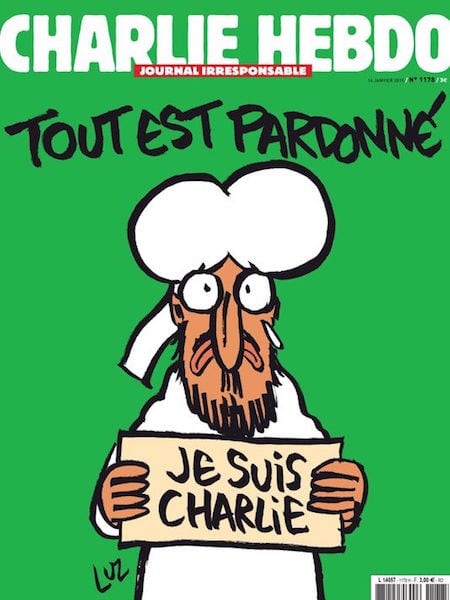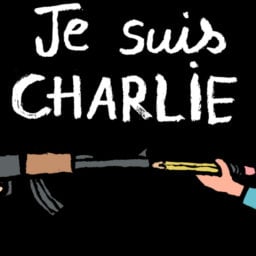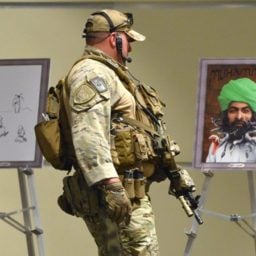

French cartoonist Renald “Luz” Luzier, the man behind Charlie Hebdo‘s controversial depictions of Muhammad, will no longer draw the prophet of the Islamic religion, reports the BBC.
In an interview with French publication Les Inrocks (as translated by the BBC), Luz explained that he had retired his Muhammad caricature because it “no longer interests me.”
“I’ve got tired of [drawing Muhammad], just like I got tired of drawing [former French president Nicolas] Sarkozy. I’m not going to spend my life drawing them,” he explained.
The French satirical magazine was the victim of a deadly terrorist strike earlier this year, with 12 killed in the initial attack, including five cartoonists. The terrorists said the murders were in retaliation for Hebdo‘s drawings of Muhammad, as many Muslims hold that it is blasphemous to depict the prophet.
Luz, who survived the shooting, created the cover for the first Charlie Hebdo issue following the shootings. “All Is Forgiven,” read the headline, with Muhammad holding a sign reading “Je Suis Charlie,” or “I am Charlie,” an international rallying cry following the incident.
Despite the immediate surge of support for the magazine, others have questioned its controversy-courting cartoons. Charlie Hebdo‘s selection as a PEN Award winner, for instance, has both high-profile supporters and opponents.
Luz has moved onto other subjects, he says. His upcoming book, Cartharsis, is a response to the harrowing experience of the shooting, and discusses how he copes with having seen such horrific violence.
Earlier this month, publishers released a new book by Charlie Hebdo editor and cartoonist Stéphane “Charb” Charbonnier, who died in the attack, completed just two days before his death.
Luz’s “Jes Suis Charlie” issue sold in huge quantities, with a print run of close to 8 million, as compared to Charlie Hebdo‘s typical 60,000 issues.
That surge in interest has created financial security at the previously struggling publication, but given those new resources, Charlie Hebdo is no longer entirely sure of its editorial direction. “Is Charlie still a political paper? Can it become a news mag?” Luz wondered. A new format will reportedly be unveiled in September.
No matter what the future holds, both for the magazine and for Luz personally, one thing is certain, Luz insists: “The terrorists did not win.”








